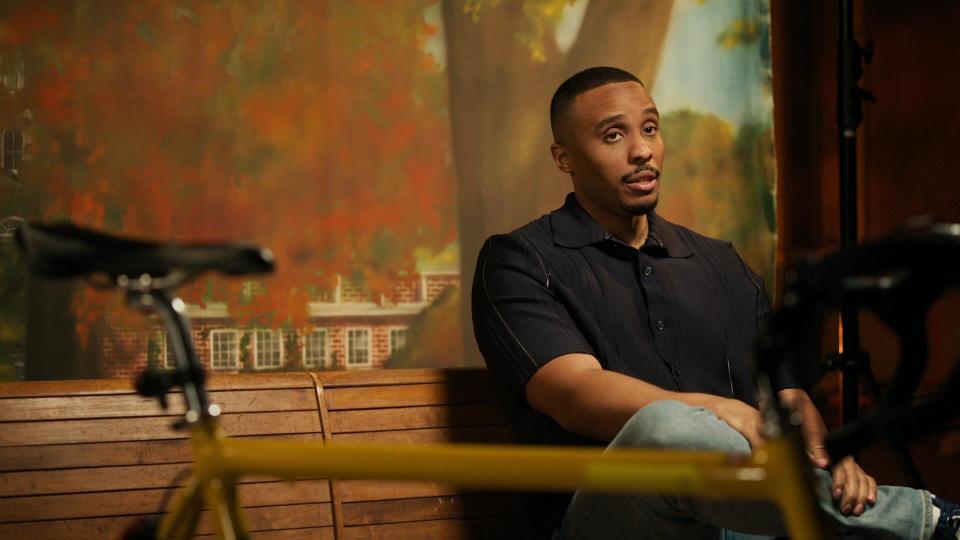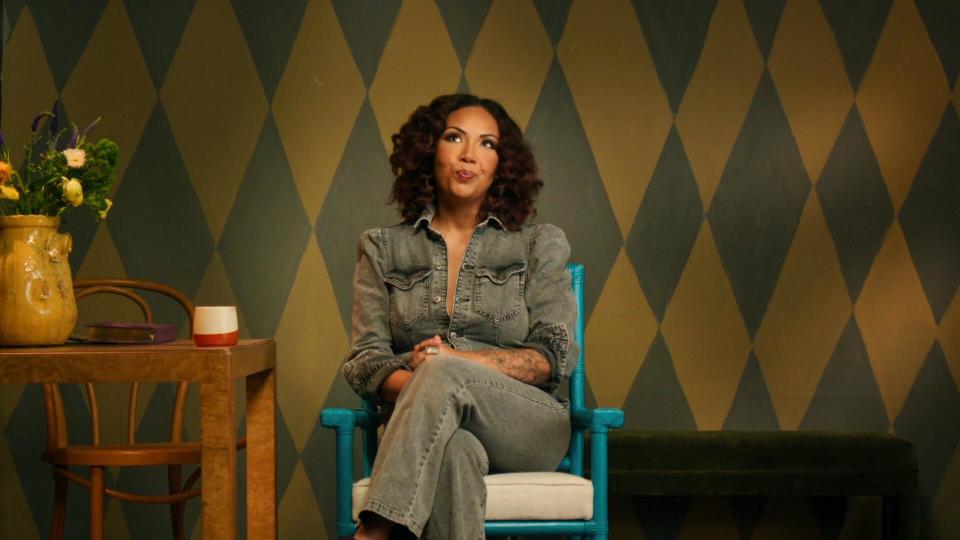Bringing ‘Black Twitter’ to Life in Hulu’s Unmissable Docuseries

- Oops!Something went wrong.Please try again later.
- Oops!Something went wrong.Please try again later.
- Oops!Something went wrong.Please try again later.
When Jason Parham found out that “Insecure” executive producer Prentice Penny was on board to adapt his “Wired” article about Black Twitter, he had a pinch-me moment. “Is this a joke?” Parham recalled thinking, laughing at a table along with Penny ahead of the “Black Twitter: A People’s History” premiere at SXSW in March.
“Being a writer is very solitary process,” Parham said, comparing it to a television writers room or production team. He was nervous at first — he serves as executive producer on he series — but describes working with Penny as “pure collaboration from the very beginning.”
More from IndieWire
“We just vibed,” said showrunner Joie Jacoby.
“I just finished ‘Insecure’ and I really wanted a break from doing scripted television,” Penny said. “I didn’t want the next thing I did to be compared to that … I wanted a fresh creative challenge.”
Penny was fresh off ‘Insecure” and wanted to try something new, knowing that any foray into scripted television would be compared to the acclaimed series that Parham himself called “an institution.” “Black Twitter” presented a “perfect marriage” on multiple fronts: Penny’s foray into the documentary space, a visual challenge for Jacoby’s honed documentary training, and a subject that all three not only cared about, but actively participated in.
“I learned so much on this one because taking [Penny’s] sensibilities, taking [Parham’s] journalistic integrity, all of that combined, to elevate the genre of documentary… the three of us all along with our producing came together to create something totally new,” Jacoby said.
The creative process began with the existing structure of Parham’s article, but then breaking down Black Twitter’s history into “pillars” of the story — foundational hashtags, key figures, interview questions, and more. Like Black Twitter itself, the docuseries constantly juxtaposes jokes and memes with immense social responsibility like the rise of Black Lives Matter. Visually, Penny opted for a mix of talking heads in the kind of settings where people use Twitter (barbershops, bars, parks), along with popular tweets, GIFs, and other media mixed in with actual news footage.
“How do you tell a story about a thing that’s kind of like air?” he asked. “It’s not around an event, you’re not telling the story of John Lewis, or the story of an event. You’re telling the story about this sort of force that exists.”

“The first thing was telling the narrative around that, but then it became how do you visually represent that? How do you create the feel of Black Twitter in the edit? Let’s have stuff that’s always layering on top of itself, or let’s have interview subjects and we’ll respond with a meme or a GIF about what they just said, because that’s sort of the language of Black Twitter. It was important that we get the memes and gifts as punctuation and commentary visually on top of what we’re talking about, so at least there’s an aesthetic to what we’re doing.”
All of that adds up to a visual that does indeed capture the razor-sharp timing and voice of Black Twitter, without compromising on context. As happy as Parham is with his article (and the show wouldn’t exist without it), he thinks the series executes an integration that was significantly tougher in print.
“It’s essentially telling three parallel stories,” Parham said. “The story of Black Twitter from its rise and influence, but it’s also the story of Twitter itself, its founding and shaping … but also the story of American Black people within that paradigm of America.”
“From popular culture to politics to just being an American, American culture in general — we’re a reflection of all that,” Jacoby added. “Black folks have always been a reflection of that, and that’s what you’re seeing.”

And then, of course, there’s the timing.
“Everything shifted,” Jacoby recalled. “Elon did not own the platform when we started this project. It was just so many shifts happening in real time as we were making it to get us to the present.”
“As the doc is getting made, Elon buys the platform and starts to change it and break it apart,” Penny explained. “We had to keep kind of changing what the ending was, to some degree. It never really changed the narrative. But I think it just made the story even more compelling. It’s sad in a way, obviously, but it proved the point as it was happening.”
Penny also pointed out that in the years since Parham’s article published, brands and influencers continue to co-opt the Black Twitter’s voices into the mainstream, while at the same time companies having abandoned diversity, equity, and inclusion initiatives they promised or committed to in 2020. Even where there is pain and frustration, the internet and Black Twitter specifically will always find a way to weave in humor and joy.
“What Black Twitter was doing is the same thing like people have done with soul food — taking the scraps of food and making like a cuisine out of that,” Penny said. “Twitter wasn’t made for us — almost the counter of that, where so much hate speech was happening … but we’ll find the way that we’ll have success in this structure and in this platform that was not made for us, and remix it and repurpose it to step into our power.”
“It’s a love letter to Black culture, but specifically black expression and black language,” Parham said. “And the way that we use it online to connect and communicate, to be joyful to come together.”
“Black Twitter: A People’s History” is now streaming on Hulu.
Best of IndieWire
The 13 Best Thrillers Streaming on Netflix in May, from 'Fair Play' to 'Emily the Criminal'
The Best Father and Son Films: 'The Tree of Life,' 'The Lion King,' and More
The 10 Best Teen Rebellion Films: 'Pump Up the Volume,' 'Heathers,' and More
Sign up for Indiewire's Newsletter. For the latest news, follow us on Facebook, Twitter, and Instagram.

